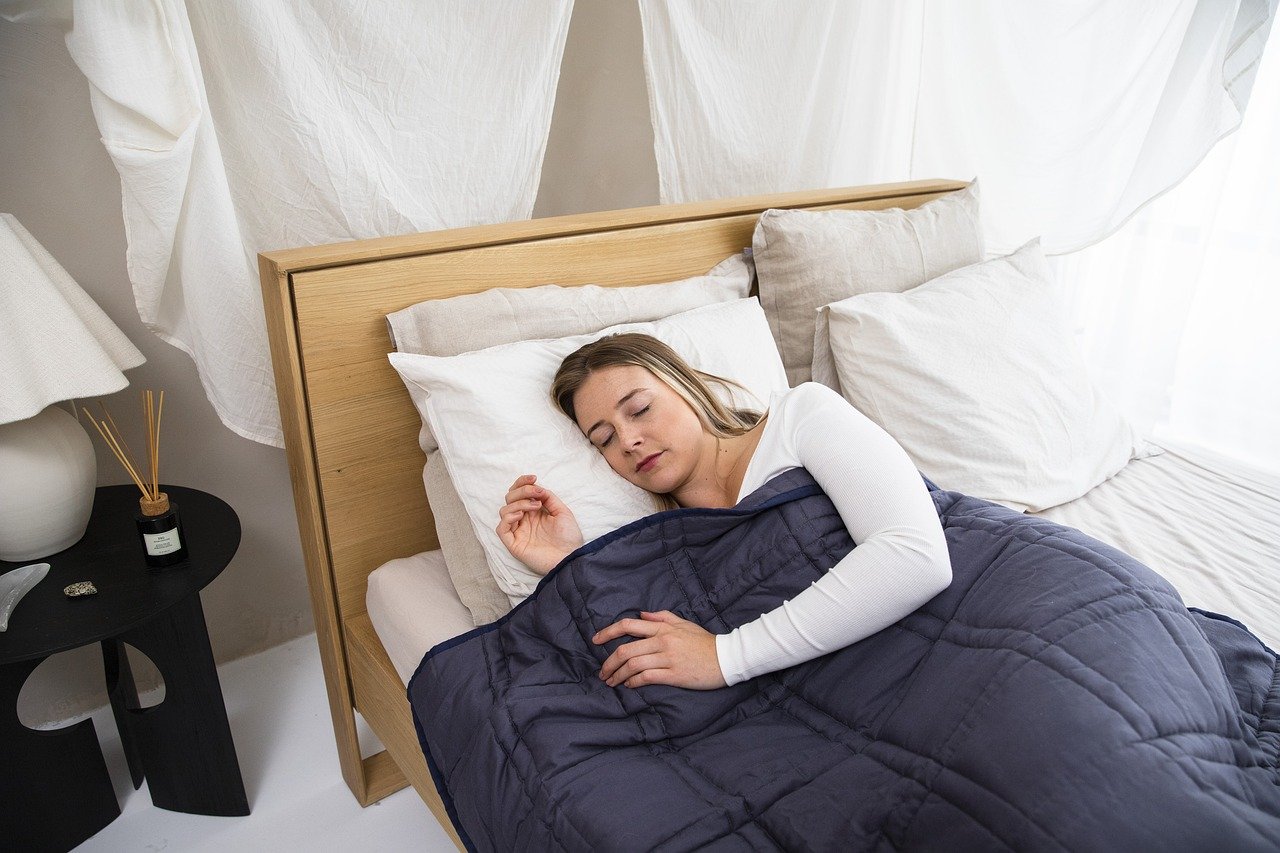When you’re raising a teen or young adult with ADHD, the demands can feel endless—school deadlines, emotional ups and downs, and the constant search for strategies to keep life running smoothly. But one important factor often slips under the radar: ADHD and sleep. For high school and college students with ADHD, quality sleep isn’t just important—it’s foundational.
Research shows that ADHD and sleep are closely connected, with sleep playing a critical role in managing ADHD symptoms like inattention, impulsivity, and emotional regulation. Yet, these same students are far more likely to face sleep struggles, from difficulty falling asleep to staying asleep through the night. It’s a vicious cycle: ADHD makes it harder to sleep, and poor sleep amplifies ADHD challenges.
The good news? With the right tools and guidance, you can help your teen or young adult take control of their sleep, breaking the cycle and setting them up for better focus, mood, and overall success.
Why ADHD and Sleep Don’t Always Get Along
First, let’s talk about why ADHD and sleep is such a challenge for students with ADHD. The same brain differences that cause inattention and hyperactivity can also disrupt sleep-wake cycles. For example, many students with ADHD have delayed circadian rhythms, meaning their brains don’t start releasing melatonin until much later in the evening.
Then there’s the hyperactivity piece. Even when their bodies are tired, their minds might still be racing—thinking about homework, replaying the day’s events, or planning tomorrow. Add in distractions like phones or gaming, and bedtime can easily slip to midnight or later.
Research indicates that a significant proportion of individuals with ADHD experience sleep disturbances. For example, a study published in PLOS ONE found that 50–70% of parents reported their children with ADHD had sleep problems, including difficulties falling asleep, nocturnal awakenings, and restless sleep.
These findings underscore the strong connection between ADHD and sleep, making it crucial to address sleep challenges in students with ADHD.
How Sleep Deprivation Affects ADHD Students
When students don’t get enough quality sleep, it’s like trying to run a race on a twisted ankle—it slows everything down. Poor sleep makes ADHD symptoms like impulsivity, forgetfulness, and emotional regulation even harder to manage. The connection between ADHD and sleep is clear: from academics to emotions to physical energy, the toll is significant:
Cognitive Struggles: Sleep deprivation affects memory and focus, making it even harder for students to absorb information in class or finish assignments on time.
Emotional Ups And Downs: Lack of rest amplifies mood swings, leaving students more irritable, anxious, or even depressed.
Physical Exhaustion: Teens and young adults with ADHD already burn a lot of energy just keeping up with everyday tasks. Without sleep, their “battery” drains even faster.
Chronic sleep deprivation in adolescents has been linked to long-term mental and physical health consequences, including an increased risk of anxiety and depression. A study by the American Psychological Association found that sleep loss undermines emotional functioning, decreases positive moods, and heightens the risk for anxiety symptoms.
The disruptions caused by the COVID-19 pandemic have only magnified these challenges. Rates of insomnia have surged, with research from Columbia Psychiatry revealing that nearly one in five people now meet the criteria for insomnia disorder—more than double the pre-pandemic levels.
For students already struggling with ADHD and sleep, this combination of disrupted routines, increased screen time, and elevated stress has created a perfect storm, making it even harder for them to fall asleep and stay asleep.
This sleep deprivation doesn’t just affect their nights—it seeps into their days, worsening the emotional and cognitive struggles already tied to ADHD. For parents, understanding how the post-pandemic world has impacted your adolescent’s sleep is an important first step in breaking the cycle of sleep struggles and helping them regain balance.
What Research Says About Sleep and ADHD
Recent research highlights the intricate relationship between ADHD and sleep patterns, highlighting the importance of consistent sleep schedules and potential interventions:
- ADHD and Circadian Rhythms: A 2023 study published in Nature examined the interaction between ADHD and circadian rhythms, revealing that individuals with ADHD often experience delayed sleep phases. Implementing consistent sleep schedules was found to significantly alleviate ADHD symptoms.
- Melatonin Supplementation: Another study explored the effects of melatonin supplements on sleep-wake cycles in individuals with ADHD. The findings indicated that melatonin could help regulate these cycles, leading to improved sleep quality and a reduction in ADHD symptoms.
- ADHD Symptoms: Interestingly, a study in the Journal of the American Academy of Child & Adolescent Psychiatry found that teens with ADHD often have poor sleep quality, including trouble staying asleep and less efficient rest overall. These sleep problems were linked to difficulties with attention and decision-making, showing just how important good sleep is for managing ADHD symptoms.
These studies reveal that good sleep isn’t just restful—it’s a powerful tool for easing ADHD symptoms and boosting overall well-being.
How Parents Can Help Improve Sleep for ADHD Students
As a parent, guiding your high schooler or college student with ADHD through daily challenges requires patience, creativity, and an endless supply of love. Among these challenges, the connection between sleep and ADHD can feel like one of the hardest to tackle. Good news is that with the right strategies, you can make bedtime less of a struggle and more of a success.
Small changes in routines, the environment, and habits can have a big impact, helping your teen get the quality rest they need to manage their ADHD symptoms and thrive in school and life. Let’s explore some practical tips to set them up for success.
1. Set a Consistent Routine: ADHD brains thrive on structure, and bedtime is no exception. Help your teen create a predictable schedule by setting the same sleep and wake times—even on weekends. Consistency reinforces the body’s internal clock, making it easier to fall asleep naturally.
2. Limit Screen Time Before Bed: The blue light emitted from phones, tablets, and laptops tricks the brain into thinking it’s daytime, suppressing melatonin production. Encourage your teen to power down at least an hour before bed. If that’s a battle, suggest alternatives like reading a book.
3. Create a Sleep-Friendly Environment: The bedroom should be a calm, distraction-free zone. Try blackout curtains, white noise machines, and no glowing screens. If your teen tends to get up and wander, try giving them a weighted blanket—it can provide a sense of calm and help them stay in bed.
4. Teach Relaxation Techniques: Many ADHD teens struggle to “turn off” their brains at night. Introduce them to simple strategies like breathing deeply, progressive muscle relaxation, or mindfulness apps designed for sleep.
5. Create a Sleep-Ready Playlist
Let your teen curate a playlist of calming music, ambient sounds, or guided meditations they enjoy. Have them play it at the same time every night to signal their brain it’s time to relax, paired with dim lighting for a cozy wind-down routine.
6. Contact an Expert: If sleep issues continue to cause disruption, it may be worth seeking advice from a sleep specialist. Therapies like CBT-I or light therapy can work wonders for regulating sleep cycles.
Helping Teens Take Ownership
For high school and college students, part of addressing the connection between ADHD and sleep lies in empowering them to take control of their sleep habits. Share the science with them so they understand why sleep matters—not just for managing ADHD, but for their grades, relationships, and mental health.
Introduce tools like sleep tracking apps to help them stay accountable. And remember, the goal isn’t perfection—small, consistent improvements can have a big impact over time.
Conclusion: Rest Is the Best Investment
Sleep isn’t a luxury; it’s a necessity—especially for students with ADHD. By understanding the unique challenges ADHD brings to the table and implementing a few targeted strategies, you can help your teen get the rest they need to thrive both academically and emotionally.
Remember, it’s a process. Some nights will be easier than others, but with patience and persistence, your teen can break the cycle of sleeplessness and unlock their full potential.
Because at the end of the day, well-rested brains are better equipped to handle anything—whether it’s tackling math homework or navigating the ups and downs of growing up.


